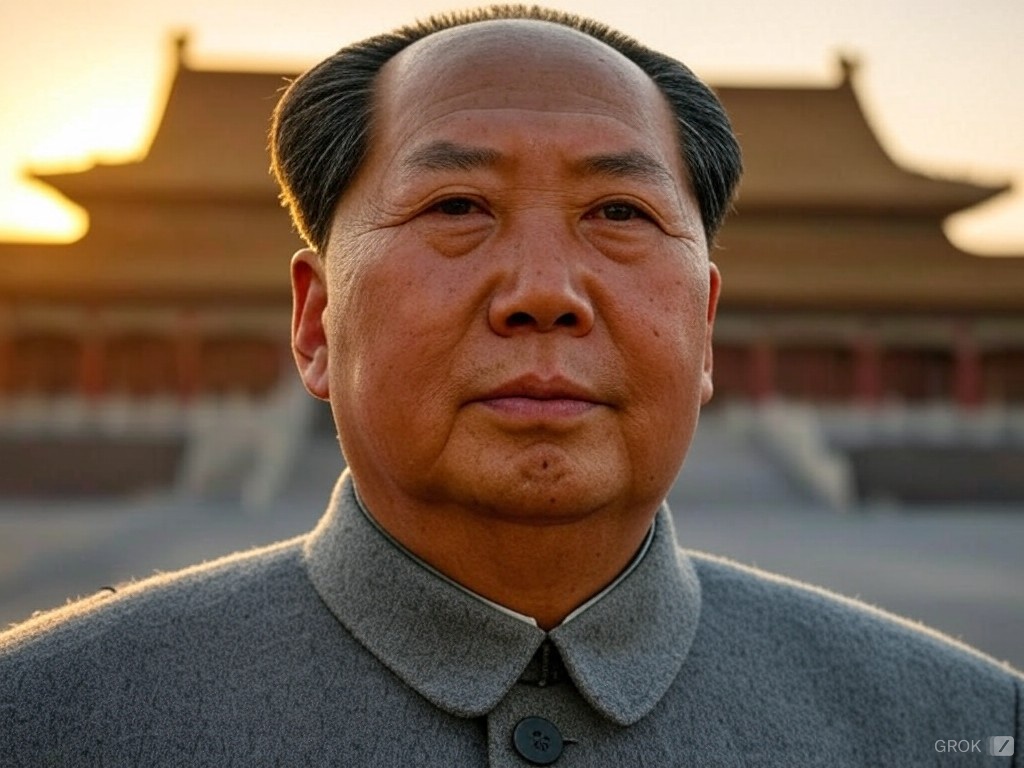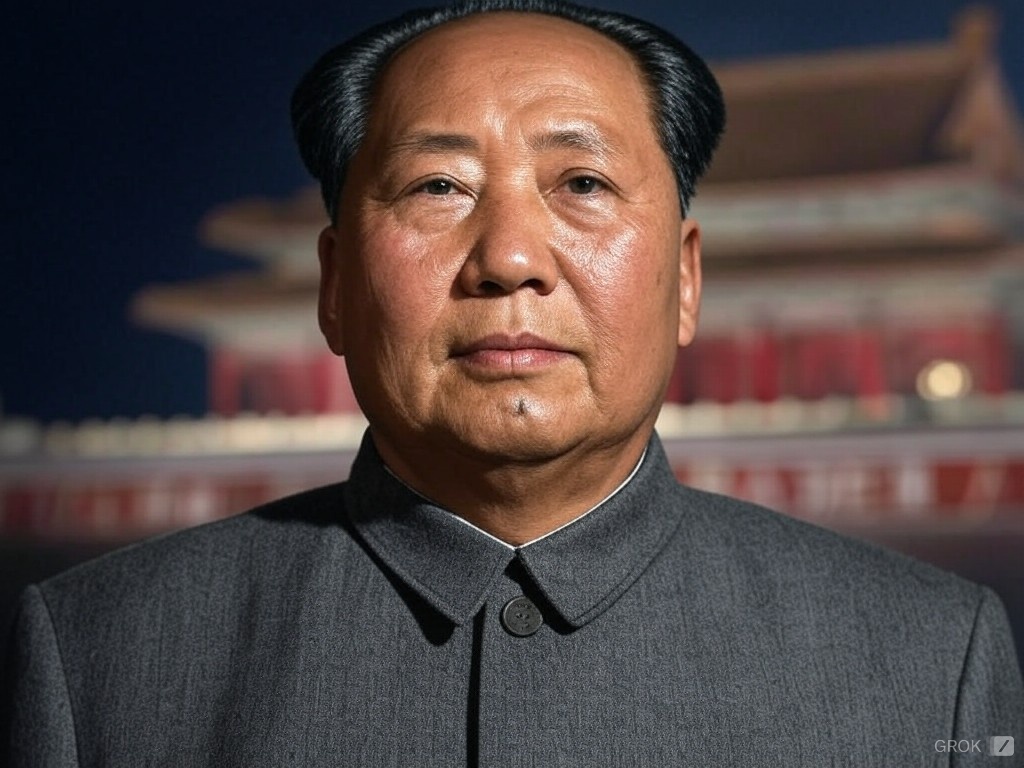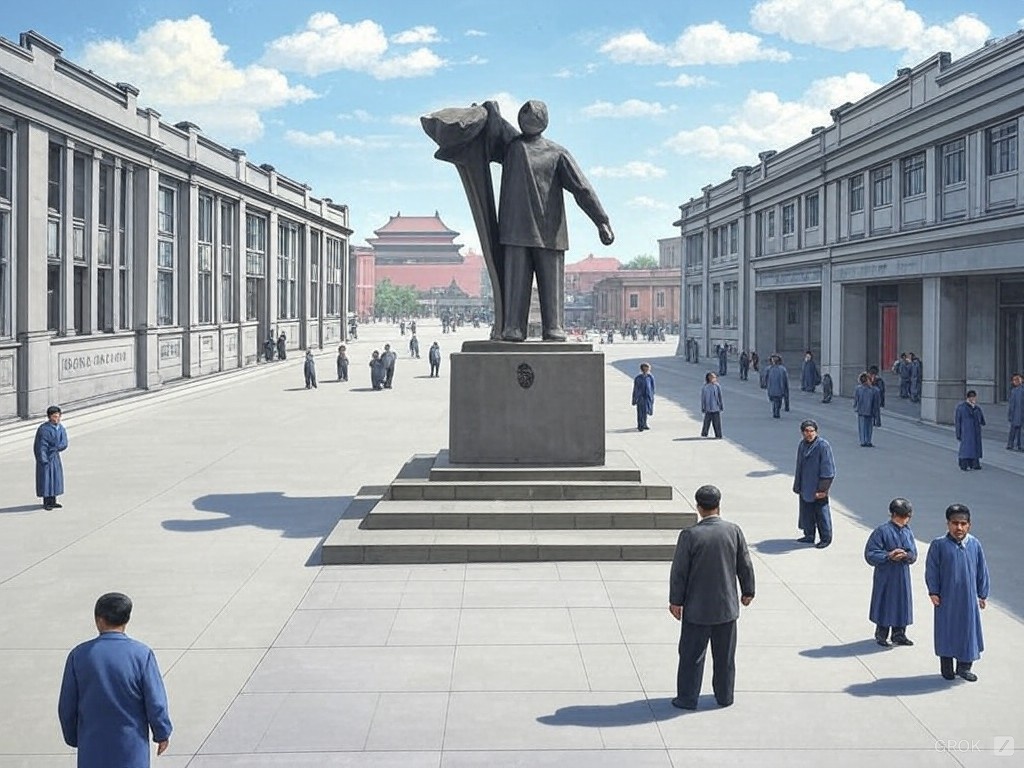Mao’s Philosophy: Dialectical Materialism in Practice
Mao Zedong’s revolutionary thought was deeply rooted in Marxist dialectical materialism, a framework that views societal change as a product of contradictions within the material world. While Karl Marx and Vladimir Lenin provided the foundational principles of this philosophy, Mao’s application of dialectical materialism was uniquely tailored to China’s historical, cultural, and economic conditions. His innovations not only shaped the Chinese Communist Party (CCP) but also offered a dynamic methodology for revolutionary movements worldwide.
Mao’s emphasis on contradictions, mass participation, and the need for continuous struggle against both external and internal adversaries created a distinct variant of Marxism-Leninism. This philosophy guided his policies, from guerrilla warfare and land reform to his more contentious campaigns like the Great Leap Forward and the Cultural Revolution. Mao’s ability to synthesize theory with practice made him a complex but undeniably transformative figure in the history of socialism.
In this article, I will explore Mao’s application of dialectical materialism, focusing on his philosophical contributions, the practical implications of his theories, and the lessons they offer to modern revolutionary movements.
The Foundations of Dialectical Materialism
At its core, dialectical materialism is a method of understanding and transforming the world based on the interplay of contradictions. According to this framework, all phenomena are composed of opposing forces or contradictions, and the resolution of these contradictions drives development and change. For Marx and Lenin, dialectical materialism was a tool for analyzing class struggle and understanding the historical progression of societies from feudalism to capitalism and, ultimately, to socialism.
Mao embraced this methodology but adapted it to address the unique conditions of China. Unlike the industrial societies of Europe, where Marx’s theories originated, China was predominantly agrarian, with a vast peasantry and limited industrial development. Mao recognized that the primary contradiction in Chinese society was not between the bourgeoisie and the proletariat but between the feudal landlords and the peasantry. This insight allowed him to redefine the revolutionary subject and place the rural masses at the center of his strategy.
Mao’s Theory of Contradictions
Mao’s most significant philosophical contribution to dialectical materialism is found in his essay On Contradiction (1937), in which he elaborates on the nature and dynamics of contradictions. Mao argued that contradictions exist universally and manifest differently depending on the specific conditions of a given situation. He introduced the concepts of “principal contradiction” and “secondary contradictions,” emphasizing that revolutionary movements must identify and address the principal contradiction to achieve meaningful progress.
In the context of the Chinese Revolution, Mao identified the contradiction between the peasantry and the feudal landlords as the principal contradiction, while secondary contradictions included those between different classes within the revolutionary alliance. By resolving the principal contradiction through land reform and the redistribution of resources, Mao believed that the revolutionary movement could create the conditions for addressing secondary contradictions and advancing socialism.
Mao’s analysis of contradictions also extended to the internal dynamics of the CCP. He warned against the complacency and bureaucratic tendencies that often emerge in revolutionary organizations, viewing these as contradictions that must be resolved through self-criticism and rectification campaigns. This emphasis on internal struggle became a hallmark of Mao’s leadership and a central feature of his approach to governance.
Dialectical Materialism in Practice: The Mass Line
One of the most practical expressions of Mao’s dialectical materialism is his concept of the “mass line.” This principle emphasizes the importance of engaging with the masses, understanding their needs and experiences, and synthesizing their ideas into coherent policies and strategies. For Mao, the masses were not passive recipients of revolutionary change but active participants whose collective wisdom and labor were essential to the success of socialism.
The mass line embodies the dialectical relationship between leaders and the people. It rejects the elitism of top-down decision-making in favor of a dynamic process of consultation, feedback, and mutual learning. In practice, this meant that CCP cadres were expected to live among the people, learn from their struggles, and integrate their perspectives into the party’s work.
The mass line was instrumental in the CCP’s success during the Chinese Civil War and the early years of the People’s Republic of China. It allowed the party to build strong connections with the rural population, mobilize support for its policies, and adapt its strategies to changing conditions. However, the implementation of the mass line also revealed challenges, particularly when local officials misrepresented or manipulated the views of the masses to align with party directives.
Continuous Revolution and the Cultural Revolution
Mao’s belief in continuous revolution is another key aspect of his dialectical materialism. He argued that the transition from capitalism to socialism was not a linear process but a series of struggles against entrenched interests, counter-revolutionary forces, and emerging contradictions within socialist society. For Mao, the failure to address these contradictions would inevitably lead to the restoration of capitalism.
This philosophy underpinned the Cultural Revolution (1966–1976), during which Mao sought to combat what he perceived as the rise of a new bureaucratic elite within the CCP. By mobilizing the masses to challenge authority and engage in ideological struggle, Mao hoped to prevent the ossification of socialism and maintain the revolutionary spirit.
While the Cultural Revolution demonstrated Mao’s commitment to continuous revolution, it also exposed the limitations of his approach. The lack of institutional safeguards and the reliance on mass mobilization led to factionalism, violence, and widespread disruption. These outcomes highlight the challenges of applying dialectical materialism in complex and rapidly changing contexts.
Self-Reliance and Anti-Imperialism
Mao’s dialectical materialism also informed his emphasis on self-reliance and anti-imperialism. He believed that China’s path to socialism could not depend on foreign assistance or mimic the models of other socialist states, particularly the Soviet Union. Instead, China needed to develop its own strategies based on its unique conditions and contradictions.
This principle of self-reliance was most evident in Mao’s economic policies, including the Great Leap Forward. While the campaign’s failures have been widely criticized, its underlying philosophy reflected Mao’s commitment to harnessing the creative potential of the masses and reducing dependency on external powers.
Mao’s anti-imperialist stance was similarly rooted in dialectical materialism. He viewed imperialism as a system of exploitation that created contradictions within oppressed nations, such as the conflict between comprador elites and the working masses. Resolving these contradictions required not only armed resistance but also the construction of new social and economic systems that prioritized equality and self-determination.
Lessons for Modern Revolutionaries
Mao’s application of dialectical materialism offers valuable lessons for contemporary revolutionary movements. First, it underscores the importance of analyzing contradictions within specific contexts. While Marxist theory provides a general framework for understanding class struggle, its application must be adapted to the unique conditions of each society. This flexibility is essential for addressing the complexities of modern capitalism, neo-colonialism, and environmental degradation.
Second, Mao’s emphasis on mass participation highlights the need for inclusive and democratic processes within revolutionary organizations. By engaging with the masses and integrating their perspectives into decision-making, movements can build legitimacy, foster solidarity, and ensure that their policies address the needs of the people.
Third, Mao’s philosophy of continuous revolution reminds us that socialism is not an endpoint but an ongoing process of struggle and transformation. Revolutionary movements must remain vigilant against complacency, bureaucratic tendencies, and the resurgence of capitalist elements within their ranks.
Critiques and Controversies
While Mao’s dialectical materialism has inspired countless movements, it is not without its critiques. Some argue that Mao’s focus on contradictions and struggle led to a climate of constant upheaval, making it difficult to achieve stability and long-term development. Others contend that Mao’s reliance on mass mobilization sometimes undermined the role of expertise and planning, contributing to the failures of campaigns like the Great Leap Forward.
These critiques highlight the need for a balanced approach to revolutionary governance—one that combines ideological rigor with pragmatism, mass participation with organizational discipline, and continuous struggle with periods of consolidation and reflection.
Conclusion
Mao Zedong’s application of dialectical materialism represents a significant evolution of Marxist-Leninist thought, offering a dynamic and context-specific methodology for understanding and transforming society. His emphasis on contradictions, mass participation, and continuous revolution provides a powerful framework for analyzing and addressing the complexities of social and political change.
While not without its challenges and controversies, Mao’s philosophy remains a vital resource for revolutionary movements seeking to navigate the tensions between theory and practice, idealism and pragmatism, and stability and transformation. By engaging critically with Mao’s legacy, modern revolutionaries can draw on his insights to confront the contradictions of our time and build a more just and equitable world.
Originally posted 2024-06-28 21:37:05.



